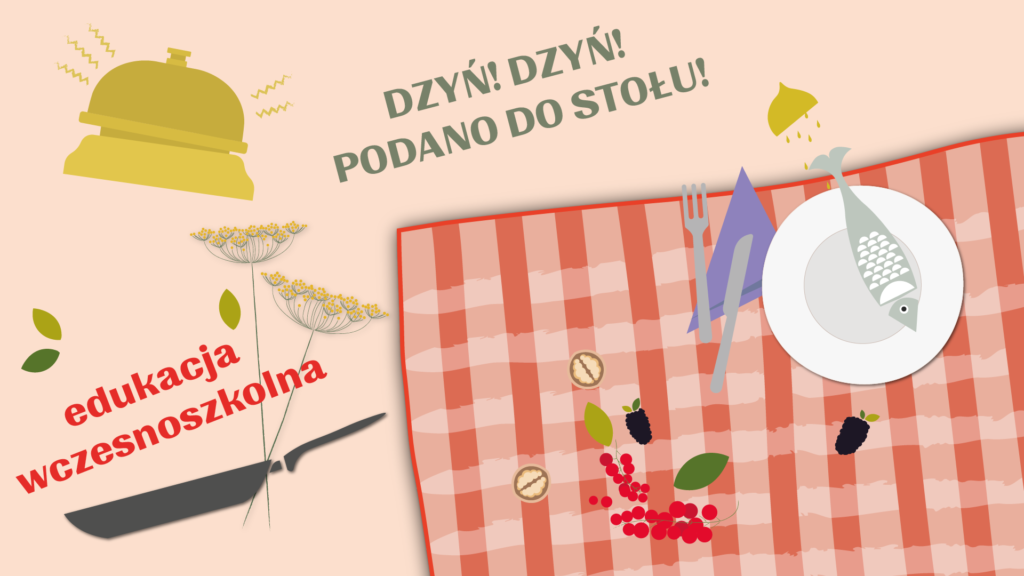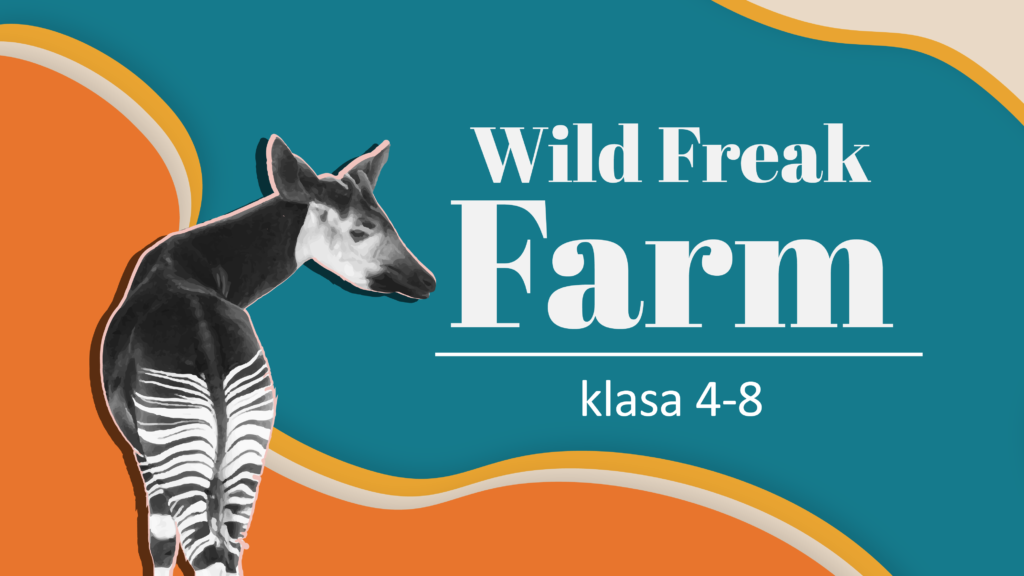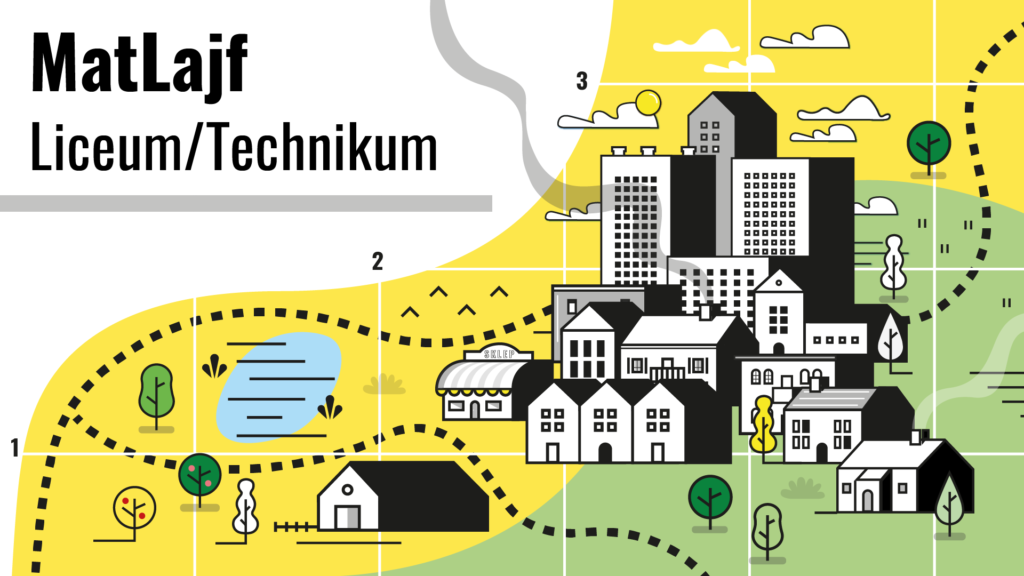DING ! DING !
TABLE IS SERVED
Do you want to feel like a real chef? Collecting products, buying the necessary equipment and serving healthy dishes? Then this game is for you!
Who will be the best chef? Who will win the title of chef? Who will have the best strategy?
Become a chef and face the challenge of preparing healthy meals, snacks and drinks according to the recipes of your family members. Three game variants with different levels of difficulty await you. Each variant will take you up the career ladder from independent chef (CUISINER) to head chef (CHEF DE CUISINE). In the game you will meet, among others, your aunts: Grazyna and Róża, you'll meet Grandma Marzena and Grandpa Kazimierz. Uncle Hubert and Michalina's recipes are sure to please you. You will find out what you can do with peaches, watercress and how to use roasted sunflower seeds. Are you up to the challenge?
The kitchen will accommodate: 2-5 players or 2-4 teams of two people

Skills developed:
Logical and strategic thinking
Spelling skills
Addition from 0-100
Conversion skills
Ding! Ding! Table is served! is a game created by teachers of early childhood education classes for use in educational activities and during students' family time. It is a game for EVERYONE. It is both an educational and strategic game improving, among other things:
- Developing the ability to use units outside the core curriculum for grades 1-3.
- Developing openness to using units of payment other than PLN, thus, using units of payment from other countries
- To improve the ability to cooperate and communicate effectively in a team,
- Developing openness to using units of payment other than PLN, thus, using units of payment from other countries.
- To develop English language skills, as the product cards are also developed in English language version
Watch the webinar hosted by the game's authors:
The authors of the game:
Aleksandra Kaczmarska
Magdalena Bogumił
Agnieszka Statucka
Elżbieta Kmita
Downloadable content:
- Multicolored game
- Black and white game
- Black and white game manual
- Multicolored game manual
- Multicolored game manual
Paczka dla nauczyciela
Pojedyncze pliki

Wild Freak Farm
The animals have escaped from the farms! You must go to your farms and collect the number of animals according to your specialisation. However, it is not as simple as that, because in the course of the game, various events will take place which will affect your farms and the animals on them. Each animal is also completely different, some will defend themselves and others will eat and chase each other away. You have to use the actions wisely because some will only affect your farm and others will affect everyone. Sometimes, however, it is worth sacrificing some animals to make room on the farm for the ones you need to win. Only one specialist will win!
Wild Freak Farm is a multiplayer, competitive, strategy card game that can be used in class, at break., during "casual" activities. While playing, players have the opportunity to learn valuable information about the animal world.
The game can be played by 2-5 players at the same time
The game is recommended for players aged 8 and over (ideally from 10/11)
Skills developed:
Knowledge of nature
Reading skills
Strategic thinking
Puzzles solving
Through the game, children can easily learn strategic thinking, planning, practise reading skills, broaden their knowledge of animals and develop curiosity about nature. The game can be used during lessons in nature, biology and geography, but also in mathematics and at day care centres.
Watch the webinar hosted by the authors and author of the game:
Game authors:
Daniel Gaweł
Paulina Korwek
Monika Hrcyk
Mariusz Jagodziński
- Multicolored game
- Black and white game
- Multicolored game manual
- Black and white game manual
- Multicolored game manual
- Video of the gamei
Paczka dla nauczyciela
Pojedyncze pliki
MatLajf
What will it be useful to me in life? Why should I do it? What if, through immersive gameplay, students were made aware that the calculations and formulas they deal with in maths lessons are relevant to the reality around them?
The MatLajf game confronts players with various practical problems that can be solved through the application of mathematics. They take on the roles of foesters, farmers, entrepreneurs or city councillors and undertake various activities in their assigned area, the implementation of which requires cooperation with neighbours, reconciling sometimes conflicting interests and resolving disputes as in real life.
Players solve mathematical text tasks of varying difficulty, but also have to use pantomime or verbal description to represent basic mathematical concepts, which introduces an element of movement and brings a smile.
They can also plan their strategies depending on the current situation on the map and their own capabilities, all of which adds a new dimension to mathematical problem solving.
The game can be played by 8-12 players at the same time
The game is recommended for secondary schools

Skills developed:
Competition and movement tasks
Solving mathematical tasks
Logical and strategic thinking
Cooperation in teams
The 'Matlajf' game is designed for secondary school students and can be used in mathematics lessons and in interest groups.
Watch the webinar hosted by the game's author:
The authors of the game:
Marek Potempa
Beata Maciej
Joanna Potocka
Iwona Kamper
Agnieszka Garbacz
- Multicolored game
- Black and white game
- Multicolored game manual
- Black and white game manual
- Multicolored game manual
Paczka dla nauczyciela
Pojedyncze pliki

The Let's PLAY! Game Based Learning - (extra) ordinary education project benefits from a 108650 € grant from Iceland, Liechtenstein and Norway through the EEA Grants. The aim of the project is is popularizing gamification and game-based-learning in the Polish education system.